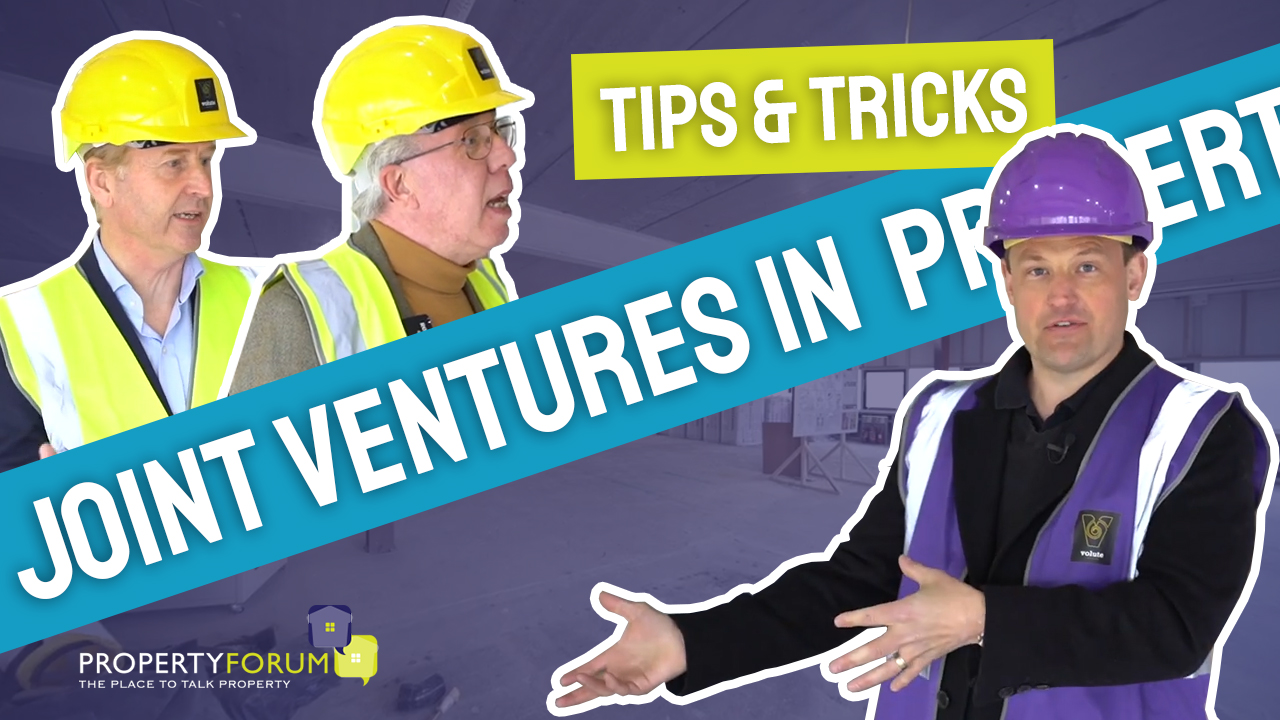As I approach the launch of my new Joint Venture opportunity, I thought it apt to look in more detail at how you should construct an effective Joint Venture for investing into property. In this video, I chat with my colleagues, property expert John Howard and Brand Entrepreneur Founder, Tony Gimple, who bring a wealth of information on the topic, particularly from a tax and contractual point of view.
Why conduct a joint venture?
For John (a seasoned property developer) conducting a JV is all about the profit. “If the outcome of the partnership doesn’t put meat and potatoes on the table, what’s the point?,” he asks.
Tony agrees 100%, but also highlights another point: “It’s extremely important to know WHO you’re going into business with. You are hostage to their fortunes. It’s really about a) What happens if things go wrong… Can you get out of the deal, even if market conditions change? And b) What’s going to happen if the person on the other side of the deal falls off their perch?”
Identifying the perfect joint venture partner
When it comes to choosing the perfect JV partner, how do we analyse the track record of the people we’re going to work within a JV?
John and I both agree that the simplest partnerships are the best. You want to partner with someone who is driven and aspirational, who has found a great deal but just needs assistance with funding, or an extra level of advice and support from someone with an extensive track record.
The perfect pairing in a JV usually pulls together people who can bring different skill sets or value to the table. Whether that’s property development expertise, cash, finance, a good deal, a trade, or contacts. A blend of expertise and resources gives you everything you need to be successful with your property development project.
John shares an analogy comparing his joint venture projects to him owning a restaurant while also knowing how to cook. In the event the chef walks out or there’s a problem, he can always step in and do the cooking, at least in property investment terms. That level of ‘on hand’ expertise brings incredible confidence to both inexperienced partners, but also helps when gaining finance for a deal.
Both John and Tony agree that, as in dating, chemistry is important: “If you don’t like the person, don’t go into business with them,” John says. “If a first date is bad, It’ll only go downhill from there!”
Tax implications of joint venture property investments
Tax implications depend on how the deal is structured from the get-go:
“It depends on whether you’ll be taking dividends, whether you’ll be taking profits, and whether there’ll be losses (which sometimes can be carried forward),” Tony says. “The key, again, is to ensure that you have the right advice from the beginning, working with a power team of surveyors etc. A team that Nicholas can offer.”
Become my JV partner
Are you interested in applying for a JV with me for your next property development? If you have the funds and the ambition, I can provide 20+ years of expertise, know-how and contractors to help take your property development business to the next level. Learn more about this opportunity by contacting me here.
